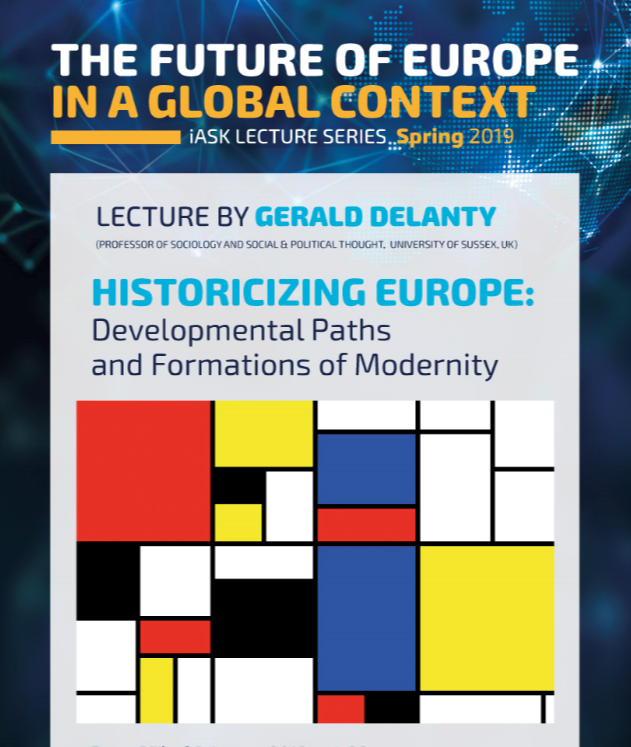Research & Studies


Future of Europe – IASK Lecture Series Spring 2019
“Historicizing Europe: Developmental Paths and Formations of Modernity” by Gerard Delanty (Professor of Sociology and Social & Political Thought, University of Sussex, UK)
Date: 25th of March 2019 at 2.00 pm.
Venue: Zwinger Old-Tower Kőszeg H-9730 Chernel st. 16.
Gerard Delanty was born and educated in Ireland. He is an Irish and British citizen. He is Professor of Sociology and Social & Political Thought, University of Sussex, Brighton, UK. He was previously Professor of Sociology, University of Liverpool and held teaching posts in Germany and Italy. He has held visiting professorships at Deakin University Melbourne and Doshisha University, Kyoto, York University Toronto, National University of Brasilia, and the University of Barcelona. His research is in the general field of social theory and the historical and political sociology of modernity. He has a particular interest in European heritage. He is the author of eleven books including Inventing Europe: Idea, Identity, Reality (Macmillan, 1995), The Cosmopolitan Imagination (Cambridge University Press 2009), Formations of European Modernity: A Historical and Political Sociology of Europe 2nd edition (Palgrave 2018). His most recent book is the European Heritage: a Critical Re-interpretation (Routledge 2018).”
Short summary: “In this lecture, he shall set out a framework to make sense of the historical form of Europe. He aims to clarify what it means to speak of Europe as a symbolic and historical reality. This is a topic that I explored in his book Formations of European Modernity: A Historical and Political Sociology of Europe. In this lecture, he revisits the argument and seeks to outline a succinct account of the core issues but with a greater focus on what he called developmental paths. In doing so, he also outlines a response to postcolonial critiques of Europe while at the same time offering a rebuttal of Eurocentric arguments on the exceptionality or exemplarity of Europe.
© 2017-2023, All Rights Reserved